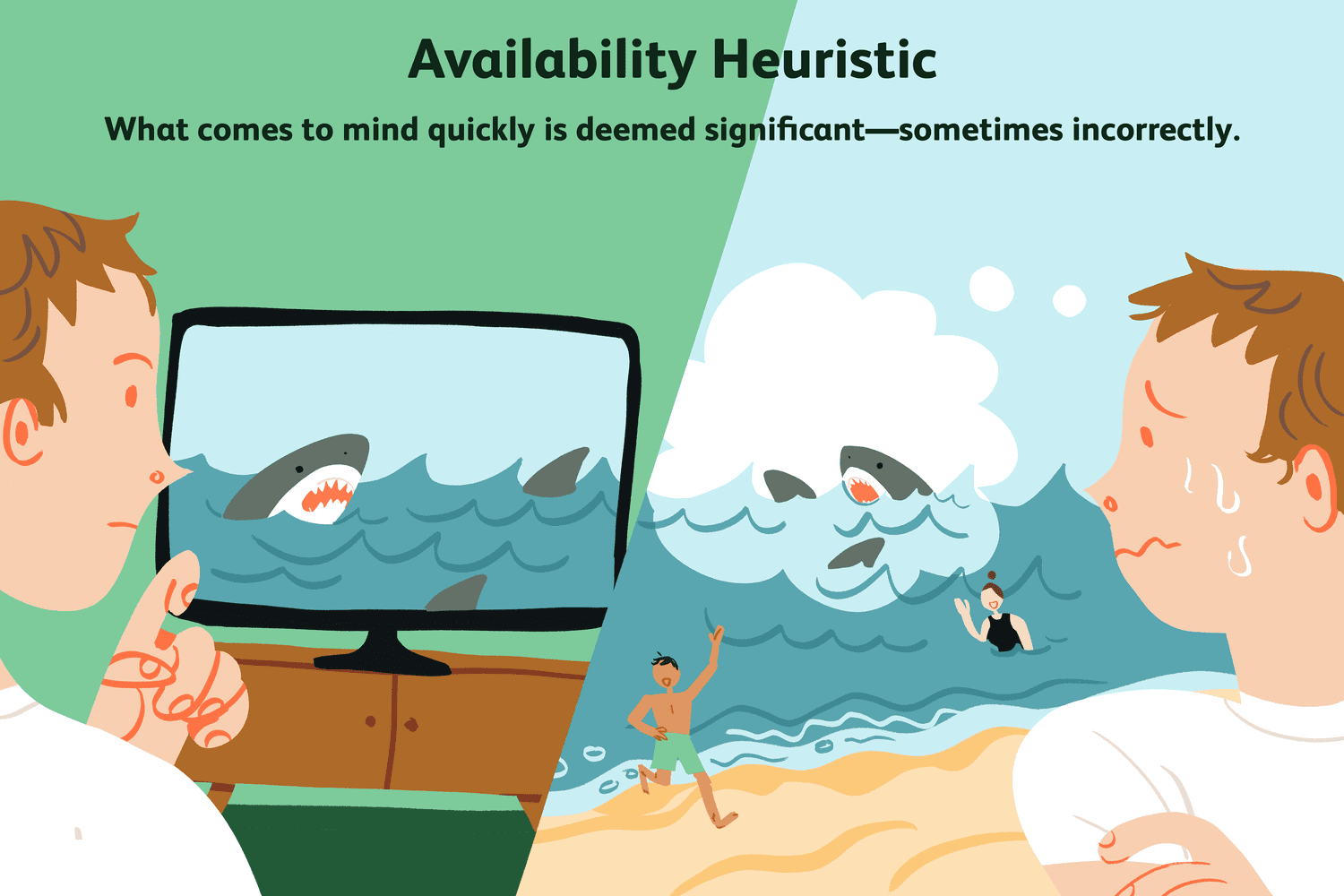The availability heuristic is a cognitive bias that affects how people estimate the likelihood of an event based on the ease with which they can recall or imagine similar events. In other words, people tend to overestimate the probability of events that come to mind readily because they are readily available in their memory, even if these events are not actually common.
Explanations:
This bias occurs because our brains tend to rely on mental shortcuts to make decisions quickly. When we can easily recall specific examples or events, we assume they must be more prevalent or probable than they actually are.
Examples:
Fear of Flying: After hearing about a plane crash on the news, people may become afraid of flying. This is despite the fact that the statistical risk of dying in a plane crash is extremely low compared to other modes of transportation.
Health Misconceptions: If someone knows a person who got sick after getting a flu shot, they may perceive the flu shot as risky, even though scientific evidence overwhelmingly supports its safety and effectiveness.
Criminal Profiling: When crimes are reported in the media, people may develop stereotypes or biases based on the characteristics of the perpetrators, even though the characteristics of a few individuals do not represent an entire group.
Solutions:
Critical Thinking: Recognize when you are relying on the availability heuristic and consciously question whether your judgments are based on actual data or just memorable examples.
Seek Diverse Information: Actively seek out a broad range of information and statistics to inform your judgments. Avoid making assumptions based solely on what you see or hear in the media or your immediate surroundings.
Statistical Literacy: Develop a better understanding of statistics and probability to make more informed decisions. Understanding the actual likelihood of events can help counter the biases introduced by the availability heuristic.
Consider Base Rates: When estimating the probability of an event, consider the base rates or overall statistics, rather than relying solely on vivid or easily recalled instances.
By consciously recognizing and addressing the availability heuristic, you can make more rational decisions based on accurate information rather than cognitive shortcuts.
